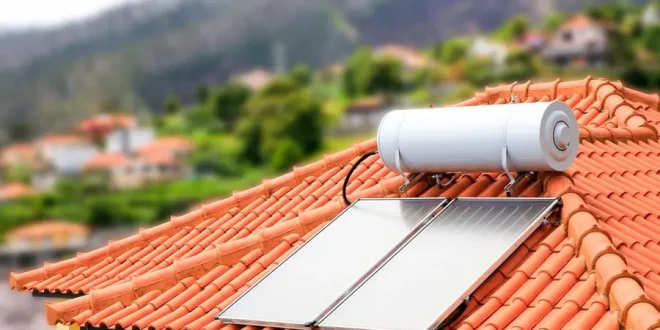Upgrading your hot water system is a major decision. Two popular options—electric hot water and solar water heating—each have advantages and drawbacks to weigh. As per the experts at Same Day Hot Water Service, while the lower operating costs of solar are appealing, electric water heating often makes more sense for residential needs.
How do you determine if electric or solar water heating is the better fit? Here’s an in-depth look at the key factors to consider.
Upfront System Costs
Solar water systems involve significant upfront investment. Components like solar collector panels, pumps, and heat exchangers can cost $2,000 to $6,000 prior to installation and labor fees. Tax credits and rebates may offset 25-30% of expenses.
By contrast, electric hot water systems have lower equipment and installation costs. Basic electric units start around $500. Tankless electric models range from $800 to $2,000. With fewer components, electric setup is also less complex.
Energy Efficiency and Operating Costs
Once installed, solar systems can provide 70-80% of a household’s hot water from free solar energy. This equals big savings on monthly utility bills. Solar also wins on carbon footprint.
However, today’s electric systems also offer impressive efficiency. Heat pump water heaters achieve 2.4 EF (energy factor) ratings. Tankless models exceed 0.90 EF. Insulation and improved heating elements slash standby heat loss.
While electric operation costs exceed solar, new systems cut electric bills substantially compared to older units. Plus, solar power isn’t free—system maintenance and eventual repairs still cost money.
Weather and Climate Considerations
Solar heating depends heavily on ample direct sunlight exposure. Those living in cooler climates may only achieve 50-60% solar operation annually due to reduced daylight hours in winter. Weeks of consecutive cloudy weather also lower output.
Electric systems provide reliable hot water year-round, regardless of weather or seasons. While solar output can vary widely month-to-month, an electric unit’s performance stays steady.
Space Requirements
Solar water heating requires large, south-facing roof space for collectors. The specific angle and direction of panels is also particular. Trees or other structures must not cast shadows blocking sunlight.
Electric tank and tankless systems have minimal space requirements. Compact electric units fit in tight spots like closets and basements. They also don’t occupy usable outdoor space.
Maintenance Requirements
Solar collectors require vigilant cleaning and maintenance for maximum efficiency. Any dust, leaves, or snow cover will degrade output. Flat plate collectors may need antifreeze replacement every 3-5 years. Pumps and controllers also need occasional repairs.
Electric systems mainly just need flushing every 6 months to a year. Unit lifespan is often over 10 years with minimal maintenance. Tankless electric units last 20+ years when cared for properly.
Hot Water Supply Needs
Solar heating best suits homes with significant daytime hot water demands. Collectors can’t store heated water—it must be used soon after heating each day. Cloudy stretches may force supplementing with electrical heating at times.
Electric tank and tankless systems accommodate varying schedules flexibly. Tanks store 30-80 gallons heated 24/7. Tankless heaters activate on demand whenever hot water is needed.
Aesthetic Considerations
For those concerned about home aesthetics, solar collectors are very visible roof accents. Their appearance may be welcome or unwelcome depending on preference.
Electric water heating keeps your roof clear and uncluttered. Tanks fit in basements or closets. Only exhaust vents are visible for tankless point-of-use models.
Conclusion
Weighing these factors helps determine if electric or solar water heating is the winner for your home. For many homeowners, the low maintenance, smaller footprint, and reliable performance of electric systems offer practical advantages over solar power.
The technology of electric heating has caught up nicely for energy savings. Unless free solar energy is a must, electric water may suit residential needs better in many cases. Consult with suppliers to pick the best system for your household needs.
 Isaiminia World Breaking News & Top Stories
Isaiminia World Breaking News & Top Stories




